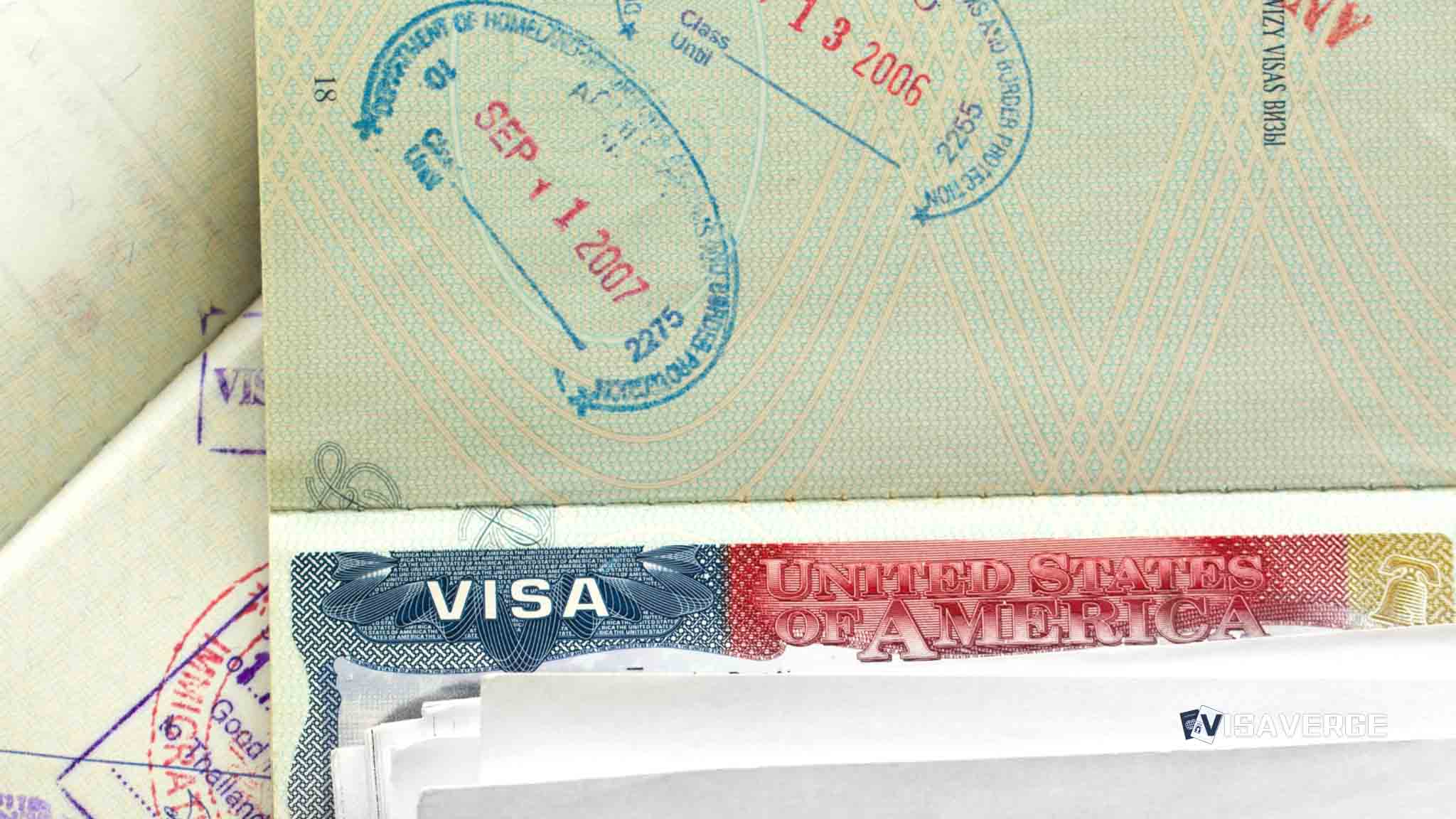Key Takeaways
- The U.S. Embassy in the Philippines introduces a new Visa Application Center to streamline and centralize visa services efficiently.
- Enhanced consular services for American citizens include a dedicated call center addressing passport renewals and voting assistance.
- The initiative strengthens U.S.-Philippines relations, boosting travel, economic ties, and diplomatic interactions in the Indo-Pacific region.
The U.S. Embassy in the Philippines 🇵🇭 is embarking on a transformative expansion of its consular operations, with a new Visa Application Center (VAC) and enhanced consular information services set to launch. This initiative is designed to streamline the complex processes associated with visa applications while offering improved support services to American citizens in the region. In the context of changing global migration patterns, the demand for U.S. visas shows no signs of slowing, making these enhancements both timely and strategic.
New Visa Application Center

At the heart of these efforts is the new Visa Application Center, which positions itself as a game-changer for Filipino 🇵🇭 visa applicants. Conceived as a comprehensive resource, the VAC will consolidate key visa services, offering document collection, biometric data capture, appointment scheduling, and handling general inquiries all in one location. This integrated model is projected to greatly reduce processing times, facilitating a more efficient pathway for applicants navigating the often arduous visa procedures. The VAC boasts an impressive processing capacity, poised to handle as many as 5,000 applications on peak days, a testament to its strategic importance in the region.
Enhanced Consular Information Services
Complementing the VAC, the embassy is also enhancing its support for American citizens through a newly established call center dedicated to American Citizen Services (ACS). Prioritized non-emergency requests from U.S. citizens residing or traveling to the Philippines 🇵🇭 will be addressed, covering a range of essential services such as passport renewals, notarial services, citizenship claims, and voting assistance. With an anticipated annual inquiry volume of 200,000, this initiative aligns with a broader mission to boost service delivery and accessibility not only for visa applicants but also for American nationals abroad.
Impact on International Travel and Diplomatic Relations
The introduction of these services is likely to exert considerable influence over U.S.-Philippines 🇵🇭 relations and international travel dynamics:
- Travel Volume: By simplifying the visa application experience, a rise in approved visas may be expected, benefiting both tourism and business travel.
Economic Ties: Easier access and faster processing times may enhance economic interactions, fortifying business and cultural ties between the two nations.
Diplomatic Strengthening: The United States’ commitment to improving these services underscores a dedication to nurturing bilateral relations, further bolstering goodwill among Filipino citizens.
Challenges and Considerations
While the potential benefits are significant, the initiative is not without its challenges:
- Data Security: Centralizing sensitive information requires robust cybersecurity measures to protect applicants’ data from potential breaches.
Training and Staffing: Success hinges on well-trained personnel capable of managing a diverse array of inquiries while upholding service standards.
Accessibility: To mitigate inequities, it’s critical to ensure that those in remote locations or with limited access to digital resources can effectively engage with the new system.
Global Context and U.S. Foreign Policy
This move is indicative of broader trends in U.S. diplomatic efforts and international migration strategies:
- Service Modernization: U.S. embassies globally continue to innovate in consular services, mirroring a worldwide shift toward digital efficiency.
Balancing Acts: Security and facilitation must coexist within the new framework, ensuring both stringent protocols and unhindered legitimate travel.
Regional Influence: Elevating visa services in the Philippines 🇵🇭 could be part of a broader effort to reinforce U.S. strategic interests in the Indo-Pacific landscape.
Stakeholder Perspectives
Various stakeholders have responded to these developments with predominantly positive reactions:
- Business Community: Local industry leaders express optimism about heightened opportunities for trade and investment.
Tourism Sector: Anticipating a rise in U.S. visitors, the tourism industry notes the potential for substantial economic benefits.
Applicants: While the streamlined process garners approval, some raise concerns about the transition to newer systems.
Conclusion
The launch of the new Visa Application Center and expanded consular information services represents a pivotal advancement in modernizing visa processing and supporting U.S. citizens abroad. Despite hurdles, particularly in implementation and access, the initiative holds significant promise for enhancing U.S.-Philippines 🇵🇭 relations and facilitating international travel. As identified by VisaVerge.com, these developments are set against an evolving backdrop of global migration, underscoring the critical role of innovative consular services in shaping diplomatic interactions and managing international mobility.
For more detailed information on U.S. visa processes, interested parties are encouraged to visit the official U.S. Embassy in the Philippines website. This resource provides comprehensive details on application requirements and procedural updates relevant to both the newly instituted and existing services.
Learn Today
Visa Application Center (VAC): A centralized facility providing key visa services like document collection, biometric data capture, and appointment scheduling.
Biometric Data: Unique physical characteristics, such as fingerprints or facial recognition, used to identify individuals in security processes.
American Citizen Services (ACS): Support provided by U.S. embassies for citizens abroad, including passport renewals, notarial services, and voting assistance.
Data Security: Protective measures to safeguard applicants’ personal information from unauthorized access or breaches.
Consular Information Services: Assistance and information provided by embassies related to visas, citizenship, and other administrative services for travelers and residents.
This Article in a Nutshell
The U.S. Embassy in the Philippines is enhancing consular operations with a new Visa Application Center, streamlining processes for Filipino applicants by offering comprehensive services like biometrics and appointment scheduling. Simultaneously, a dedicated call center for American citizens will improve non-emergency services. This initiative aims to strengthen U.S.-Philippines relations.
— By VisaVerge.com
Read more:
• Philippines Initiates POGO Visa Downgrades Amid Gaming Ban](https://www.visaverge.com/news/philippines-initiates-pogo-visa-downgrades-amid-gaming-ban/)
• Philippines to Host U.S. Visa Center for Afghans](https://www.visaverge.com/news/philippines-to-host-u-s-visa-center-for-afghans/)
• Philippines Visa Waiver Proposal for Guam and CNMI](https://www.visaverge.com/news/philippines-visa-waiver-proposal-for-guam-cnmi/)
• Rise in Indian Students Choosing Philippines for Medical Education](https://www.visaverge.com/news/rise-in-indian-students-choosing-philippines-for-medical-education/)
• Chinese Tourists Switching to Student Visas for Longer Stay in Philippines](https://www.visaverge.com/news/chinese-tourists-switch-to-student-visas-to-stay-longer-in-philippines/)














